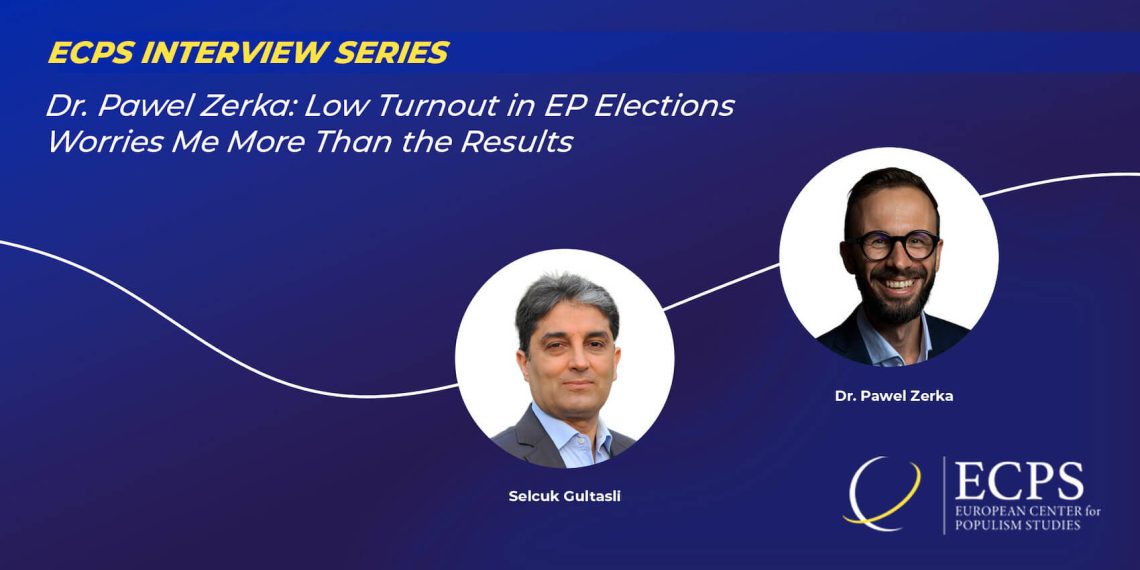Just three weeks ahead of the European Parliament elections, Dr. Pawel Zerka says he is more concerned about low turnout than the election results. Dr. Zerka stated, “Even if the far-right increases its number of seats, it will still be a clear minority. What is much more concerning is the lack of reasons for a high turnout.” Concerning the potential threat to liberal democracy in Europe due to the possible success of the far-right in the EP elections, Zerka said, “There is surely a danger for what the EU will stand for in the coming years. However, the responsibility for that danger lies on the shoulders of not just the far-right, but even more so on the center-right.”
Interview by Selcuk Gultasli
As the European Parliament (EP) elections approach, Dr. Pawel Zerka, a senior policy fellow at the European Council on Foreign Relations (ECFR) and a leading analyst on European public opinion, emphasizes his concern over low voter turnout rather than the election results themselves. In an interview with the ECPS on Friday Dr. Zerka highlighted his worries, stating, “Even if the far-right increases its number of seats, it will still be a clear minority. What is much more concerning is the lack of reasons for a high turnout.”
Dr. Zerka also expressed concerns about the potential threats to liberal democracy in Europe stemming from the possible rise of far-right power in the EP elections. He argued that the real danger lies in how the European Union (EU) might be reshaped in the coming years, emphasizing that the responsibility does not rest solely on far-right parties but also on center-right ones. He elaborated, “Maybe ‘threats to liberal democracy’ would be an exaggeration for me. But there is surely a danger for what the EU will stand for in the coming years. However, the responsibility for that danger lies on the shoulders of not just the far-right, but even more so on the center-right.”
The far-right’s potential surge in the EP elections, scheduled for June 6-9, has been a topic of intense discussion. However, Dr. Zerka clarifies that a far-right victory is unlikely, and the focus should instead be on the broader implications for EU policies and dynamics. According to his analysis, the far-right and Eurosceptic parties, grouped under the “Identity and Democracy (I&D)” and “European Conservatives and Reformists (ECR)” factions, might increase their seats from 30% to 37%, remaining a minority but achieving a significant foothold in the Parliament.
The increasing influence of far-right parties across Europe is evident, as seen in recent political developments in the Netherlands, Finland, Croatia, and Austria. Dr. Zerka noted, “This is quite worrisome. We have Georgia Meloni, who leads the coalition government in Italy. Even though she has largely detoxified her image and is no longer seen as a problem by most European leaders or the public, she still represents Brothers of Italy, a party with several disturbing elements in its political platform.”
Reflecting on the mainstreaming of far-right values, Dr. Zerka highlights a troubling trend where center-right parties adopt far-right positions to retain voter support. He observed, “In a way, it’s the center-right or liberal parties that, by working with the far-right, legitimize and normalize the far-right alternative. This has already happened to a large extent with migration policies and is increasingly occurring with climate policies.”


